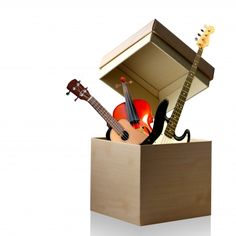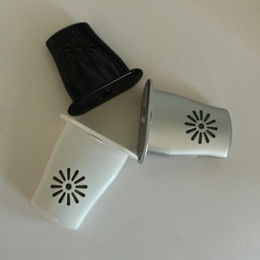- Home
- Instruments
- Gear
- Recording
- Lessons
- Reviews
- Blog

One of the less known parts of guitar maintenance is the impact humidity has on guitars over a longer period of time. The way you store your instruments, especially acoustic guitars, is important. Most people have them hanging on the wall in their room, or just leaning against the wall. This way of storage is highly dangerous if you want to keep your guitar in good condition. The impact humidity has on guitars is something every guitar player should know. Just like any other piece of wood, guitars react to the environment they are in.
Electric guitars and bass guitars don't suffer from these problems as much due to their solid construction, but acoustic guitars definitely do. No matter how well aired your room is, chances are you will need to create the perfect storage conditions manually. To battle humidity, there are guitar humidifiers which will keep the levels of humidity at optimal values. Today we are going to talk about four benefits of using a guitar humidifier.
If you're up for checking out the creme de la creme of this niche, feel free to consult our list of Best Guitar Humidifiers.
The body of an acoustic guitar is a box, everyone knows this. The thickness of the wood that forms this box makes it prone to the effects of humidity. If the room your guitars are stored in is dry, your sound box will shrink inwards. In other words, the top and back of the guitar will compress. This particular phenomenon leads to all kinds of issues including damage or deformation of the bridge and more.
On a similar note, if the environment is too humid, the body of your guitar will slowly start to bloat. The extent of the damage both of these issues can cause varies. You can have only slight deformation that is virtually invisible, or you can end up with an instrument that completely ruined and unplayable.
 There are different types of guitar players out there, and not all of them share the same standards when it comes to quality of guitars. For most, a guitar is just a hobby they like to indulge in from time to time. For others, however, it is far more than that. Because of this, it's counter intuitive to spend thousands of dollars on an acoustic guitar, then spend more money to get a case that will protect that guitar, only to store it in your room.
There are different types of guitar players out there, and not all of them share the same standards when it comes to quality of guitars. For most, a guitar is just a hobby they like to indulge in from time to time. For others, however, it is far more than that. Because of this, it's counter intuitive to spend thousands of dollars on an acoustic guitar, then spend more money to get a case that will protect that guitar, only to store it in your room.
Acoustic guitar factories and workshops build these instruments in specifically chosen conditions. These are then shipped to guitar stores who will store the guitars in a carefully maintained environment. If you value your instruments and want to protect your investment, a guitar humidifier is a must-have device.
 It's no secret that acoustic guitars rely on the soundbox to produce sound. The materials chosen to make the soundbox along with its dimensions and construction are what defines the tone of an acoustic guitar. If you store your guitars in an environment with humidity issues, that tone will slowly start to degrade. This is caused not only by the damage done to the soundbox as we explained earlier but also to the other parts of the guitar.
It's no secret that acoustic guitars rely on the soundbox to produce sound. The materials chosen to make the soundbox along with its dimensions and construction are what defines the tone of an acoustic guitar. If you store your guitars in an environment with humidity issues, that tone will slowly start to degrade. This is caused not only by the damage done to the soundbox as we explained earlier but also to the other parts of the guitar.
The neck is one element that is prone to deformation due to humidity, that is also found on every type of guitar out there. You can correct the damage done, but only to a certain extent. Over time as humidity slowly starts to impact your instrument, you will begin to experience different issues.
 So far we have described just what kind of damage can be done to the performance of acoustic guitars if they are exposed to wrong levels of humidity. However, the finish on your guitar is also affected by this problem. Most high-end acoustic guitars have intricate finishes that are partially what makes them so appealing.
So far we have described just what kind of damage can be done to the performance of acoustic guitars if they are exposed to wrong levels of humidity. However, the finish on your guitar is also affected by this problem. Most high-end acoustic guitars have intricate finishes that are partially what makes them so appealing.
Whether it is a nice sunburst finish or a delicate nitro coat, you will want to keep it pristine. When humidity starts affecting an acoustic guitar and the wood starts to ‘work', the finish will be strained to a point of cracking.
One of the simplest ways to spot an early onset of deformation due to humidity is to look for cracks in your finish. This kind of damage doesn't necessarily affect the performance of the guitar as it can happen even with just slight wood deformation. It does affect the appearance of an acoustic guitar and definitely lowers its market value.
Owning a guitar humidifier is something every serious acoustic guitar owner should do. These devices are inexpensive compared to the damage they prevent, especially if we are talking about high-end acoustic guitars. If you never heard of a guitar humidifier but are interested in getting one, check out our article ‘5 Recommended Guitar Humidifier Brands' that talks about brands that we think are currently the best

Reader Interactions